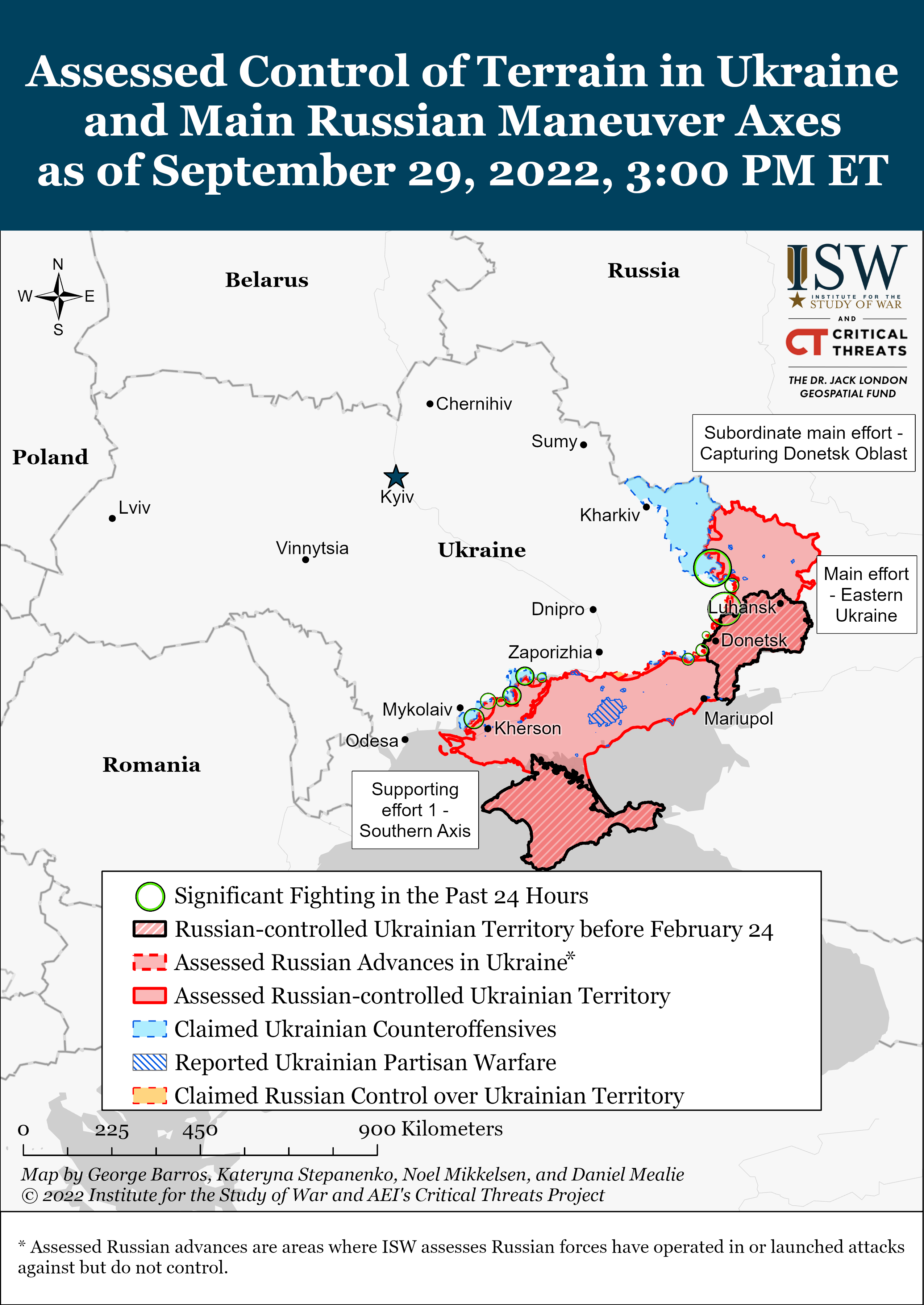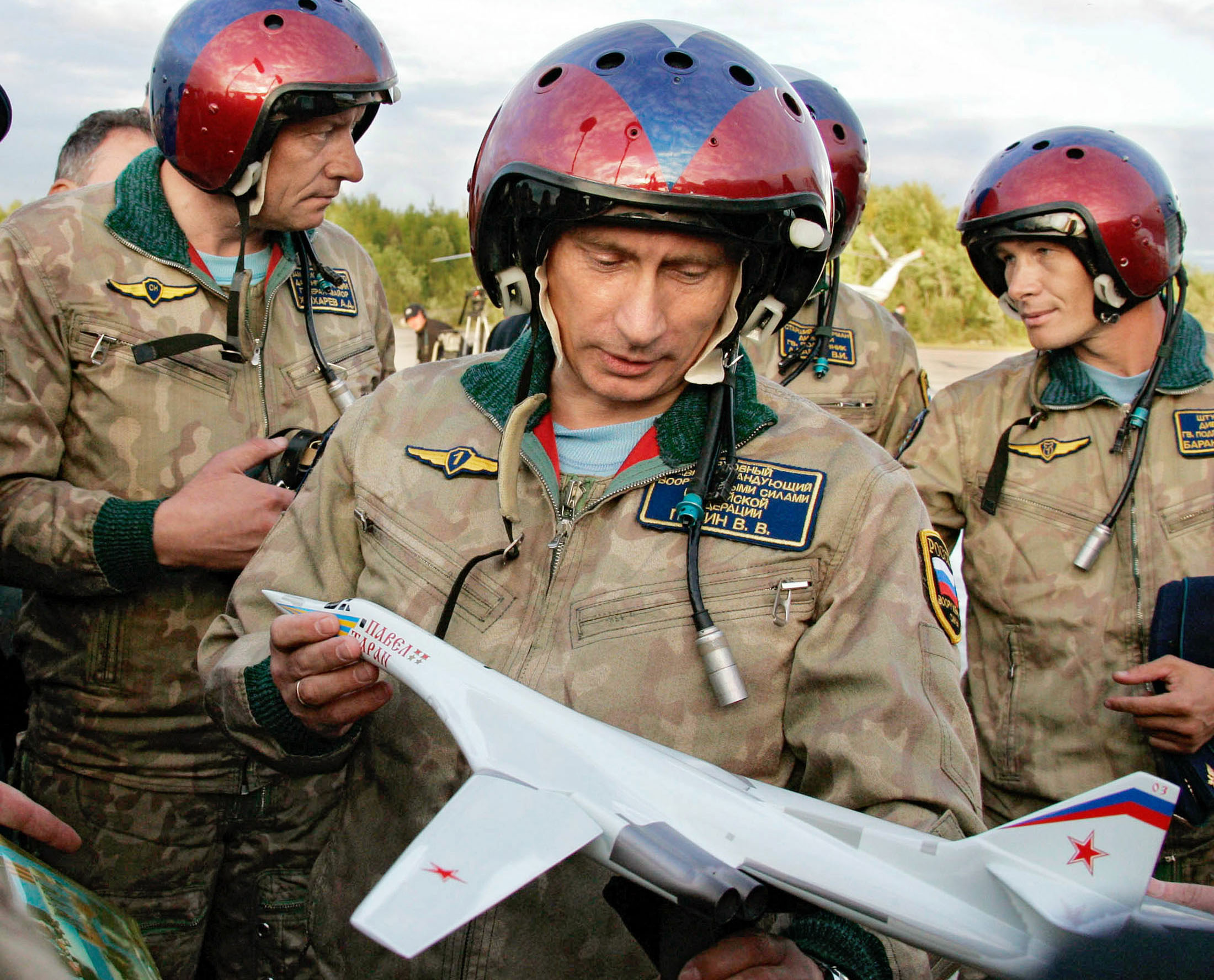Russian Military Weakness - Recruited reservists during a partial mobilization near buses as they leave for military bases, September 27, 2022, in Sevastopol, Crimea. /Alexey Pavlyshak
WASHINGTON, Sep 30 () - Britain's Chief of Defense Staff, Admiral Sir Tony Radakin, said on Friday that Russia's mobilization highlighted the pressure the Kremlin faces as its armed forces show signs of "increasing weakness and weakness" in the Ukraine war.
Russian Military Weakness

"There are pressure points. There are some cracks in the Russian armed forces," Radakin told a small group of reporters in Washington.
Russia's Problems With Military Professionalization
But Radakin warned that the conflict is waning, with Ukraine poised to take advantage of Russian "pressure points". He did not foresee a sudden collapse of the Russian battlefield.
"The basic feature (of the conflict) is a grinding nature, capturing and building temporary advantages. You don't see much change in the balance between the two," he said.
His comments came shortly after Russian President Vladimir Putin delivered a 37-minute anti-Western tirade in Moscow on Friday, before signing documents to annex four regions of Ukraine, which Ukraine, the United States and the European Union have denounced as illegal. Head of the United Nations.
Even as Putin spoke, his troops were besieged in the Ukrainian town of Lyman, 750 kilometers to the south, and Ukraine said Moscow must appeal to Kiev to let them go.
Sitting Ducks? Russian Military Flaws Seen In Troop Deaths
Radakin said Putin's comments, including the nuclear rhetoric, were an example of "Russia reacting from a point of weakness and desperation."
He said Ukraine, which launched a lightning counteroffensive this month and recaptured the Kharkiv region, still has more opportunities in the northeast and east of the country. Asked if the Russian mobilization of Ukraine's armed forces had any effect, Radakin said: "In a military or strategic sense, nothing."
"It revealed the pressure from Russia," said Radakin, who urged mobilized Russian troops to come with bandages and winter clothes.

"I don't think that such a mobilization, carried out in such a casual, fanciful and shocking way, will cause much fear in the Ukrainian armed forces," he said.
Putin's Weakness On The Frontlines Of Public Opinion
Phil Stewart has reported from more than 60 countries, including Afghanistan, Ukraine, Syria, Iraq, Pakistan, Russia, Saudi Arabia, China and South Sudan. An award-winning national security reporter based in Washington, Phil has moderated national security programs on NPR, PBS NewsHour, Fox News and other programs, including the Reagan National Defense Forum and the German Marshall Fund. He received the Edwin M. Hood Award for Diplomatic Correspondence and the Joe Galloway Award. NATO allies are rethinking Russia's military might, but military analysts warn that Russia's early military failures in Ukraine do not make it dangerous.
NEW TO SUBSCRIBERS: Robbie Grammer Robbie Grammer, Amy McKinnon Click + to receive email alerts for new stories by Amy McKinnon
Troops from Estonia and other NATO member states take part in a large-scale military exercise in Tappa, Estonia, on May 27, 2021. Raigo Pajula/AFP via Getty Images
During his decade and a half at the Pentagon, Christopher Skaluba read countless reports and assessments about the Russian military and how it faced NATO forces. Now that he's gone, watching Russia's invasion of Ukraine for months, he has a new message for defense planners: "Every one of the miscalculations I've read about over the last decade and more has been wrong."
The Russian Double — Defeat And Decline
Across NATO, defense planners are reassessing Moscow's military power in their contingency plans, and a conventional war between the alliance and Russia is unlikely, several current and former U.S. and European defense officials say. The reassessment follows Moscow's embarrassing military setbacks in Ukraine, as well as the Kremlin's willingness to launch a full-scale military invasion.
There are two key assumptions that defense planners in NATO's major capitals have gotten wrong over the years, former NATO Secretary General Anders Fogh Rasmussen said in an interview with Foreign Policy. At first, Rasmussen said: "We overestimated the strength of the Russian military. Despite huge investments in military equipment and the reopening of former Soviet bases, we saw a very weak Russian military.
"Another miscalculation is that we underestimated the ruthlessness and ambitions of President [Vladimir] Putin," Rasmussen added.

Now, in the capitals of Europe and North America, consternation from defense ministries is dusting off years-old assessments of the Russian military's combat prowess and beginning to challenge long-held assumptions about what a war would look like. between NATO members and Russia.
What Russia's Failure In Ukraine Means For Putin And The World
"Whether it's morale, communication or a lack of preparation, there are a lot of factors that add up to something that's not expected from a developed military," Skaluba said of Russian forces, "even at the beginning. The conditions and the assumptions. they went [to Ukraine] they were invalidated."
One scenario that NATO troops were preparing for was a rapid land grab by the Baltic states on NATO's vulnerable eastern flank. NATO members had planned and prepared exercises to retake those countries from Russian forces, assuming that Russia could quickly crush their forces and seize the territory first.
After seeing how badly Russian forces fared against Ukrainian forces, some U.S. and other Western defense planners are urging NATO to reconsider that plan: It seems more feasible with the right size and mix of coalition forces, command structures and military hardware. The Baltics could effectively deter or otherwise meet and resist an invasion by Russian forces. On the other hand, a Russian attempt to invade NATO territory in the Baltics also seems a highly unlikely scenario.
At a NATO summit in Madrid at the end of June, Baltic leaders are expected to propose expanding NATO's footprint in the region. Baltic officials say upgrading NATO forces could serve as a more effective form of "deterrence through denial" against any plans by Putin to seize Baltic territory. After seeing a US intelligence report on the impending Russian invasion, the Baltic states are hoping that laggards like France and Germany will sign on to their plan.
Not Built For Purpose: The Russian Military's Ill Fated Force Design
At a time when NATO-Russia relations are at their most precarious in the post-Cold War era, some analysts believe it is time to draw preliminary conclusions about what the NATO-Russia conflict might look like if the Ukraine conflict spreads. . Allied territory "The risk of escalation is still there, so it's prudent for NATO planners to think about what the NATO-Russia conflict might look like," said Andrea Kendall-Taylor, a former U.S. intelligence official now at the Center for a New American Security, a think tank.
Skaluba, Kendall-Taylor and other military analysts warn that the war in Ukraine is far from over, and that Russia can learn to adapt and improve its military, especially as it works to shake off its defeats in northern Ukraine. Capture territories in eastern Ukraine. "We've already seen a capable Russian force in places like Georgia and Syria, and now a bit more in Ukraine," said Skaluba, now director of the Atlantic Council's Transatlantic Security Initiative. “I cannot believe that the pathetic performance we have seen in recent months [in Ukraine] reflects the entire Russian military.
The exact number of war casualties on both sides is difficult to determine, but it is clear that Russia has already suffered staggering losses. Ukrainian President Volodymyr Zelensky has claimed that around 30,000 Russian soldiers were killed, while the British government estimates that they were closer to 15,000. But Moscow still has a pool of military officers and conscripts, albeit poorly trained ones. and furnished, he showed no intention of withdrawing from the war.

The war has so far had two distinct phases: an initial attack on Kiev based on the highly flawed political assumption that the Ukrainian government would collapse within days, and continued fighting in the Donbass region of eastern Ukraine by senior officials Russian military. had a greater impact on operations.
Russian Army Hobbled By Shortage Of Soldiers
"In the early stages of the war, the bigger problem was the plan than the army," said Michael Kaufman, an expert on the Russian military at the CNA think tank. "We are now at a point where we can further assess the Russian military."
In the run-up to the war, there was a widespread perception in the West that if Russia launched an all-out offensive, Ukrainian military defenses would quickly collapse. Ukraine's tough and effective defense proved everyone from Putin to many defense planners in Washington wrong. But drawing direct lessons from the conflict for NATO is complicated because there are so many variables involved.
"There is no general conflict between NATO and Russia," Kaufman said. "Where and under what circumstances do plans, battle objectives, and assumptions really matter. It's not a permanent thing
Post A Comment:
0 comments so far,add yours